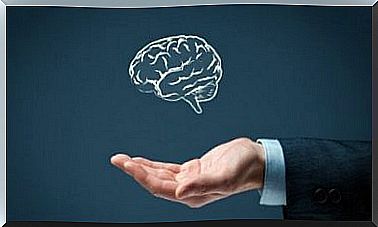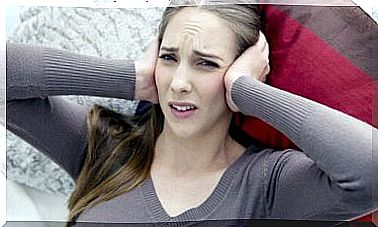No To A Restrictive Diet, Yes To Healthy Habits

Yes or no to a restrictive diet? That is the question. Are you one of those people who goes on a diet only to feel guilty and frustrated? Do you feel like you are only half enjoying yourself?
Here are some resources to help you understand what’s behind diet culture. And how to distinguish popular miracle diets from healthy lifestyles. Say goodbye to restrictive diets and take care of yourself. These are the keys to breaking this vicious circle.
What’s Behind Diet Culture?

The meaning of the word “diet” comes from Greek. It was defined as “ the types of food that a person eats on a regular basis. ”
Over the years, this word has come to mean many more things. It has become a concept that has to do not only with a diet, but also with a way of life. One that sometimes deviates from a healthy life, and also one that has a negative impact on both physical and mental health.
It’s easy to see how the word “diet” can affect your emotional state. At some point its meaning is polarized and when you are on a diet you limit yourself. If you don’t, though, you can eat whatever you want.
This polarity, imposed by the media and a diet culture, can negatively impact your emotions and quality of life. It can keep you from changing and maintaining good eating habits and a healthy lifestyle. Why is this so?
Taking good care of yourself is much more than healthy eating habits
Taking good care of yourself doesn’t just mean eating healthy. It also implies integrity and harmony. It also means, the impossibility of separating physical and emotional aspects as independent elements. Both on a general level and in changing your eating habits.
Take, for example, someone who is overweight (English link) who wants to lose some kilos. He instinctively knows to limit his food intake. That’s because people think that the less they eat, the faster they will reach their goal.
However, a restrictive diet is harmful to health. It does not take into account important aspects of persons, such as their emotions.
According to studies, people are better off when they integrate psychological elements. These should go hand in hand with a diet program. This is actually more important than focusing on a restrictive diet.
So there is a lot of improvement in mixed programs. Not only in the level of self-esteem, but also in the perception of body image and self-efficacy. These programs also improve motivation level and attachment to a change process.
Characteristics of a Restrictive Diet
There must be an end to the erroneous belief that you need to follow a restrictive diet to lose weight. The first thing you need to know is how diet culture works and the negative thoughts and emotions it causes. What are the characteristics of a restrictive diet mindset?
These are the most common:
- There are start and end dates.
- It involves limiting and eliminating the consumption of certain foods. It thus leads to fear and negative feelings such as guilt and frustration.
- Incompatibility with social events. Man is a social animal. Any nutrition plan that is incompatible with your social life is a goal you cannot sustain in the long run.
- It may sometimes promote rapid weight loss, but not from body fat but from muscle mass.
- It is effective in the short term.
- In many cases, these types of diets have a rebound effect.
- Body weight is the only indicator of progress.
- They lead to negative feelings and low self-esteem. This is because the goal is impossible to achieve; generally a certain weight in a short period of time.
Say no to a restrictive diet and yes to healthy habits

The concept of health is no longer “the absence of disease” and has become a general state of well-being, both physical and psychological. That’s why there is a different definition for “healthy habits.” It is the pattern of behavior you adopt as your own, which repeats itself over time and has a positive effect on your health.
The main characteristics that define healthy eating habits are:
- They are guided by real goals that help assess small achievements.
- Healthy eating habits involve gradual changes in diet and lifestyle.
- They are associated with progressive weight loss. This is a consequence, not the goal.
- They are not restrictive and imposed. It’s about learning how to sharpen the criteria by which you choose food.
- Healthy eating habits help achieve health goals that are maintained over time.
- In addition, they are physically and psychologically at an appropriate level, which increases well-being.
- They do not lead to guilt and frustration.
- Finally, they are compatible with social life.
Latest comments
You now know the main differences between diet culture and a change in eating habits. Yet it often happens that doubts arise about time and immediacy.
You should also keep in mind that changing habits takes time. So, before you feel like you should embark on a restrictive diet, think about how many years you’ve already invested in this vicious circle.
Is it possible to take care of yourself by focusing only on what you see? Will punishing yourself with restrictive diets that can’t last forever positively affect your self-esteem?
The answer is clear: no, at least not in a healthy way. How about changing your focus? What if you invest in something else? Something like learning to take care of yourself without dieting?









